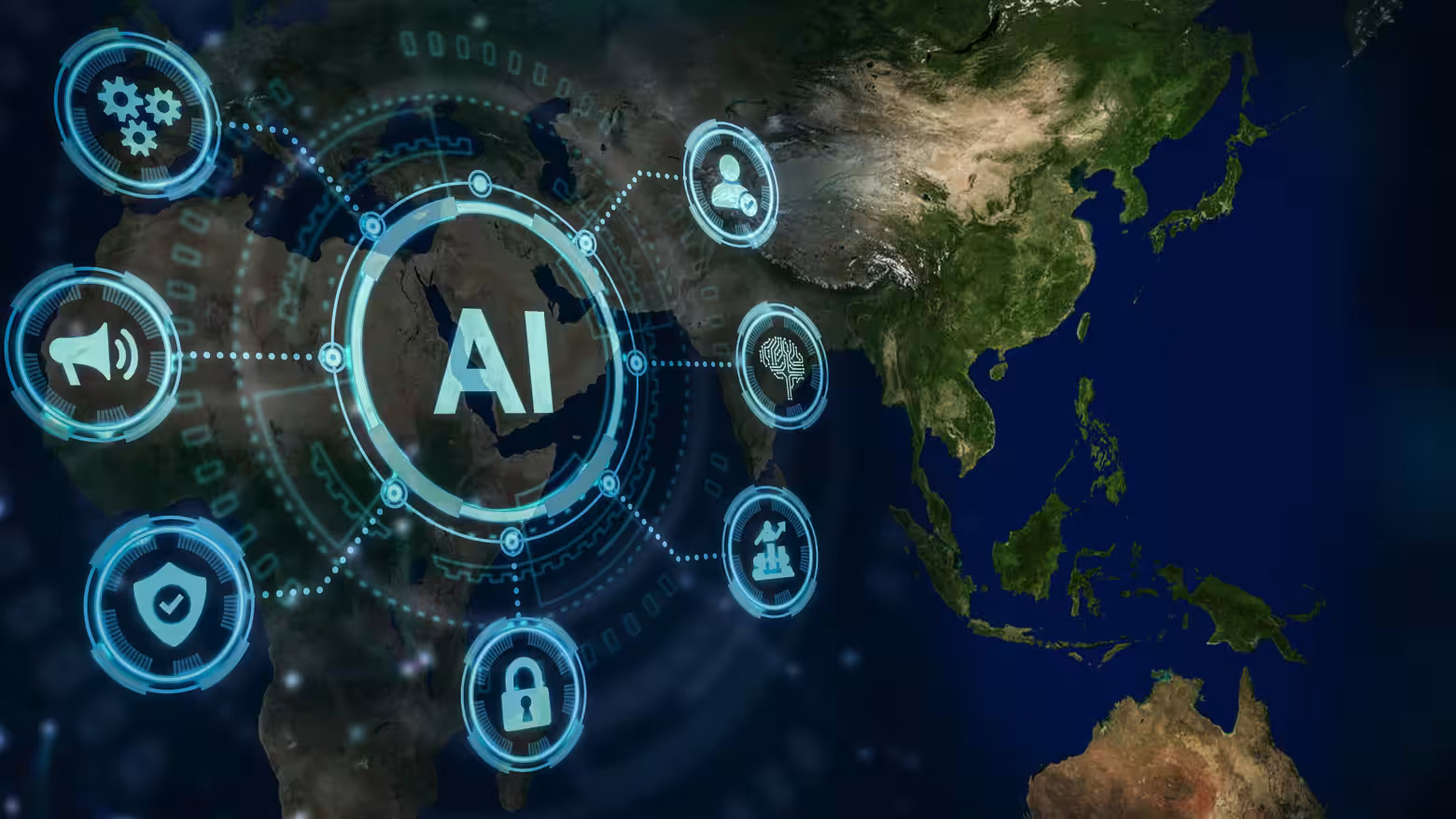Artificial Intelligence (AI) is rapidly transforming industries across Southeast Asia (SEA), driving innovation, efficiency, and competitiveness. With its ability to solve complex problems, AI has become a cornerstone of digital transformation strategies in the region, particularly in sectors like healthcare, finance, logistics, and e-commerce. This article explores the opportunities and challenges of AI adoption in SEA and highlights its transformative impact on businesses.
The AI Revolution in Southeast Asia
SEA’s unique economic and demographic landscape makes it an ideal testing ground for AI applications. With a young, tech-savvy population and an increasingly digital-first economy, the region is embracing AI at a fast pace. Governments and private enterprises alike are investing in AI-driven solutions to improve productivity, enhance customer experiences, and solve pressing challenges.
Key sectors benefiting from AI adoption include:
- Healthcare: AI is revolutionizing diagnostics, drug development, and personalized medicine in SEA. For example, AI-powered tools are helping doctors detect diseases earlier and more accurately, particularly in underserved rural areas where access to specialists is limited.
- Finance: In the fintech sector, AI is enabling fraud detection, credit risk assessment, and personalized financial planning. Machine learning models analyze vast datasets to identify fraudulent activities and assess creditworthiness for individuals with little to no financial history.
- Logistics and Supply Chain: AI-powered algorithms optimize supply chain operations, reducing costs and improving delivery times. Predictive analytics helps companies anticipate demand and adjust inventory levels accordingly.
- E-commerce: AI enhances customer experiences through personalized recommendations, dynamic pricing, and automated customer support. Retailers are using AI-driven insights to understand consumer preferences and tailor their offerings.
Opportunities for Businesses Adopting AI
- Enhanced Efficiency: AI automates repetitive tasks and streamlines operations, allowing businesses to focus on strategic initiatives. For instance, chatbots and virtual assistants handle customer queries efficiently, reducing the need for human intervention.
- Data-Driven Decision Making: By analyzing large datasets, AI provides actionable insights that inform business decisions. Companies can better understand market trends, optimize pricing strategies, and predict customer behaviors.
- Scalability and Flexibility: AI solutions are inherently scalable, allowing businesses to adapt to changing demands without significant infrastructure investment.
- Competitive Advantage: Early adopters of AI gain a significant edge over competitors by offering innovative products, faster services, and personalized customer experiences.
Challenges in AI Adoption
Despite its potential, adopting AI in SEA comes with challenges:
- Limited Talent Pool: The demand for AI expertise far exceeds the supply of skilled professionals in SEA. Companies often struggle to find data scientists, AI engineers, and machine learning experts to implement and manage AI projects.
- Data Privacy and Security: SEA’s regulatory landscape around data privacy is still evolving. Businesses must ensure compliance with local data protection laws while safeguarding user data against breaches.
- Cost of Implementation: AI adoption requires significant upfront investment in infrastructure, training, and technology. Smaller businesses may find it difficult to justify these costs without immediate ROI.
- Integration Complexity: Integrating AI systems into existing workflows and legacy systems can be challenging, requiring extensive planning and change management.
The Future of AI in Southeast Asia
SEA’s AI journey is just beginning, with immense potential for growth. Key trends shaping the future of AI in the region include:
- Increased Government Support: Governments across SEA are launching AI-specific initiatives to drive adoption. For example, Singapore’s National AI Strategy aims to integrate AI into key sectors like healthcare, logistics, and education.
- Cross-Industry Collaboration: Partnerships between tech companies, startups, and industry leaders are fostering innovation and accelerating AI deployment across various sectors.
- AI Democratization: As AI tools become more affordable and accessible, small and medium enterprises (SMEs) will increasingly adopt AI to remain competitive.
- Focus on Ethical AI: Ensuring fairness, transparency, and accountability in AI systems will be crucial as adoption scales. Businesses must address biases in AI models and prioritize ethical considerations.
Conclusion
AI has the potential to transform SEA’s industries, offering businesses a unique opportunity to innovate and grow. Companies that embrace AI today will be better equipped to navigate the challenges of tomorrow, gaining a competitive edge in a rapidly evolving digital economy.
By leveraging AI to enhance efficiency, improve customer experiences, and make data-driven decisions, businesses in SEA can unlock immense value and contribute to the region’s digital transformation.
Credits:
This article is inspired by insights from the e-Conomy SEA 2024 report, highlighting AI’s transformative potential across industries in Southeast Asia. Our thanks to the researchers and industry leaders whose work sheds light on the opportunities and challenges of AI adoption in the region.
The Leap editorial team compiled and adapted this information to provide valuable insights for businesses and professionals exploring the future of AI in SEA.
Read More






 Tuesday, 03-03-26
Tuesday, 03-03-26







